Personnel Review Committee
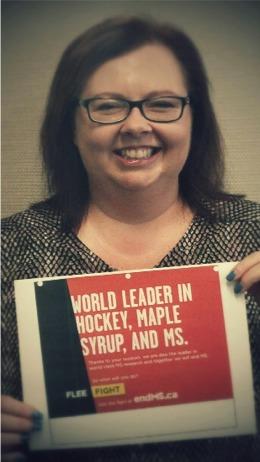
Cora (Corrie) Shaw – Fredericton, New Brunswick
A volunteer of the MS Society of chapters in New Brunswick and passionate learner of research and treatments in multiple sclerosis, Corrie Shaw is one of the four Community Representatives on the Personnel Awards Review Committee. Corrie continues to be inspired by MS Society community due to the unprecedented level of awareness, education and support for people affected by MS. With the commencement of the 2016 research review process, Corrie is excited to participate by, “expanding my knowledge of disease-modifying therapies, especially for primary and secondary progressive MS”.
Read Corrie’s full interview
In what ways have you been involved with the Multiple Sclerosis (MS) Society of Canada as a volunteer, as a leader, and/or as an ambassador?
I have been involved by as a volunteer with the New Brunswick chapter. Additionally, my application is being considered currently for the Peer Support Program.
What inspires you to get involved with the MS community?
The availability of MS education, awareness and support are critical. No one knows MS better than someone who has it or someone who cares for someone who has it.
Please describe one particular moment or experience with MS that is most important to you or has been most instructive in your life.
My first appointment in a neuromuscular clinic at the Stan Cassidy Centre for Rehabilitation. It was five hours with the five specialists. I knew that day that MS was complex and needed to be taken seriously.
What makes you feel like you are an ideal representative for the MS community?
MS research is fascinating and to be a part in any way is incredible. I feel I make an ideal Community Representative because I love research and want to learn and want to help.
Is there any area of MS scientific research that you are especially passionate about?
DMTs in general and PPMS, SPMS treatments.
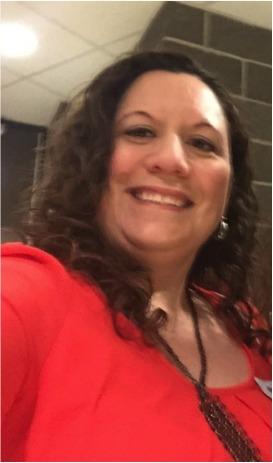
Coriann Berry – Airdrie, Alberta
A longtime volunteer for the MS Society’s MS Walks and mailing campaign, Coriann understands the impact of multiple sclerosis and importance of raising funds for research. Her connection to multiple sclerosis began with the diagnoses with her brother, then later herself. In regards her first-hand account with MS, Coriann says, “This is what my brother has had to deal with all of these years. It made me sad but also made me determined to do more to help find a cure. If we can understand what causes it – we will be closer to finding a cure.” As a newcomer to the review and members of the Personnel Awards Review Committee, she is passionate in learning more about the research endeavors of the MS Society.
Read Coriann’s full interview
In what ways have you been involved with the Multiple Sclerosis (MS) Society of Canada as a volunteer, as a leader, and/or as an ambassador?
I have participated in the MS walk on several occasions. I have also participated as a volunteer for the MS walk. I have also been a volunteer in the MS society’s mailing campaigns.
What inspires you to get involved with the MS community?
My baby brother was diagnosed with MS 7 years ago. I have always been his protector (and he would say also his tormentor) but I could not protect him from this disease. So I started to get involved with the MS community. Then in Sept. This year (2015) I was also diagnosed with MS. This increases the risk that my niece and nephew will get MS and I am determined more than ever to help find a cure within my lifetime.
Please describe one particular moment or experience with MS that is most important to you or has been most instructive in your life.
I think it was when I was having the MS episode that eventually led to my diagnose. I was pretty sure when I lost feeling in both my hands and feet and my left leg muscle tightened that I had MS but it was scary not knowing when or if I would ever recover from that episode and all I could think of was “This is what my brother has had to deal with all these years.” It made me sad but also made me determined to do more to help find a cure.
What makes you feel like you are an ideal representative for the MS community?
I have experienced the effects of MS from the side of someone impacted by a love ones disease. Now I am experiencing the impact of MS on someone who has it.
Is there any area of MS scientific research that you are especially passionate about?
I am most passionate about trying to find a cure and understanding what causes MS. If we can understand what causes it – we will be closer to finding a cure.
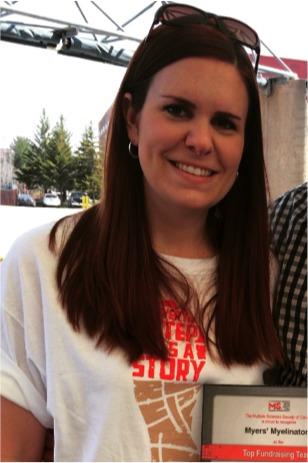
Julie Myers – Sault St. Marie, Ontario
A social worker by profession, Julie is a natural advocate of multiple sclerosis and fervent participant at her local MS Walk. After being informed that she would require treatment with a disease-modifying therapy for her MS, Julie struggled to find appropriate medical coverage. Throughout the six month appeal process, she developed her knowledge of medical coverage, insurance and government policies related to MS. As a new Community Representative on the Personnel Awards Review Committee, she is keen on learning about new treatments and trials in primary progressive MS. “It is an exciting time to see what research is being done in this area, as well as all other treatment options in terms of both disease modifying drugs and medications to help symptoms of MS.”
Read Julie’s full interview
In what ways have you been involved with the Multiple Sclerosis (MS) Society of Canada as a volunteer, as a leader, and/or as an ambassador?
Since my diagnosis of MS, I decided to get involved with my local MS Walk every year, getting together a large team of family and friends. Our participation in the walk every year has been a great way to get involved with the MS Society and fundraising.
What inspires you to get involved with the MS community?
Since the moment I was diagnosed with MS, I committed to becoming as knowledgeable about the disease as possible. I recognized that I needed to be able to advocate, not only for myself, but for others dealing with MS. As a professional social worker, this involvement feels natural to me. Getting involved with the MS community is important because MS impacts me every single day, so I refuse to remain in the background and not get involved, whether it is with fundraising, gaining knowledge or being a part of this process with the MS Society of Canada.
Please describe one particular moment or experience with MS that is most important to you or has been most instructive in your life.
When I was originally prescribed my current DMD to treat my MS, I was denied by my insurance provider. I went through over six months of appealing for this medication that I knew I desperately needed to manage this disease. Through this process I gained an incredible amount of knowledge about medication coverage, insurance and government health policies related to MS and my own ability to persevere as I was eventually successful in gaining coverage for this medication.
What makes you feel like you are an ideal representative for the MS community?
As a social worker, I am a natural advocate and enjoy getting involved in causes that are important to me. I feel I can take these skills with me to an area that is so close to my heart having been diagnosed with MS myself.
Is there any area of MS scientific research that you are especially passionate about?
I am aware that there are new medications in trials for Primary Progressive MS and I am very interested in following these as individuals with this diagnosis are so limited in treatment options at this time. It is an exciting time to see what research is being done in this area, as well as all other treatment options in terms of both disease modifying drugs and medications to help symptoms of MS.
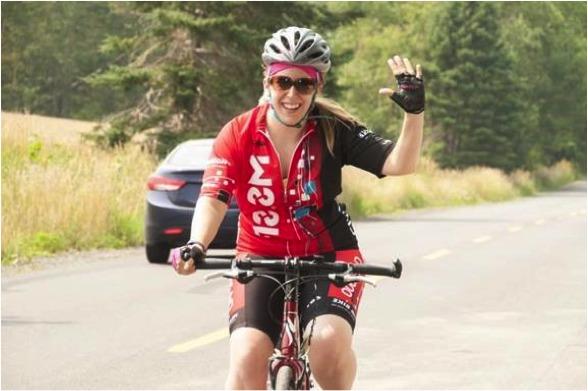
Shannon Gilby – Beaver Bank, Nova Scotia
A returning Community Representative, experienced participant of the MS Bike Tour and captain of the largest MS Bike team in Nova Scotia (team ‘Roadkill’), Shannon is a force to be reckoned with. Her involvement with the MS Society of Canada began 10 years ago due to her aunt’s diagnosis of MS. Since then she has raised over $22,000 for research towards finding a cure for MS, as well as awareness for the disease. For 2016, Shannon will be participating in the Personnel Awards Review Committee. When asked about her past experience as a Community Representative, she said, “I have seen many different aspects of the MS Society as a volunteer and fundraiser. Seeing how everything comes together, how it all works and how it helps people in our own communities provides me with knowledge to spread to others in the MS Community.”
Read Shannon’s full interview
In what ways have you been involved with the Multiple Sclerosis (MS) Society of Canada as a volunteer, as a leader, and/or as an ambassador?
I started getting involved with the MS Society when I volunteered with the MS Bike Tour helping with the daily activities, I have gone as part of the staff running the logistics for the New Brunswick bike tour. A few years ago I was lucky enough to take part in the Tour of Champions and rode in the MS Bike Tour in Miami. Anyone that raises over $10,000 in a year is invited to take part in this event that is held every year. The past couple years I have been the team Captain for the largest Bike team in Nova Scotia, team Roadkill. Last year I took part in the biomedical review committee
What inspires you to get involved with the MS community?
I started to get involved with the MS Society when my aunt was diagnosed 10 years ago with MS. Just out of high school I wanted to find a way to get involved and to help and since then I have raised over 22,000 dollars towards finding a cure for MS.
Please describe one particular moment or experience with MS that is most important to you or has been most instructive in your life.
Taking part in the Tour of Champions was so eye opening seeing other Canadians and Americans riding towards finding a cure for this disease.
What makes you feel like you are an ideal representative for the MS community?
I feel like I am a good representative for the MS Community as I have seen many different aspects of the MS Society as I have been a volunteer, a participant as well as gone as staff to some events. Seeing how everything comes together and how it all works and how it helps people in our own communities really provides knowledge to spread with others wondering about the MS Community.
Is there any area of MS scientific research that you are especially passionate about?
I am always looking to learn more about this disease that is effecting so many Canadians.
Clinical and Population Health Review Committee
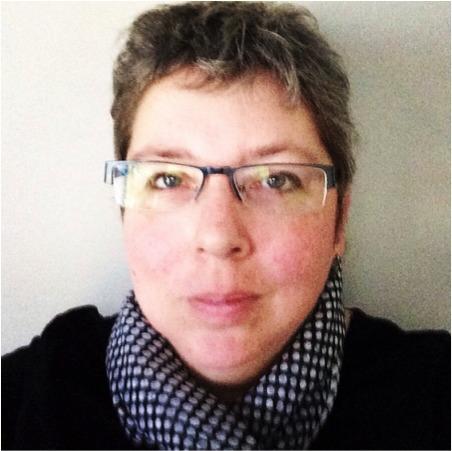
Lelainia Lloyd – Port Moody, British Columbia
A returning member, Lelainia has been an avid volunteer and ambassador at the MS Society of Canada and a Health Mentor with the UBC Interprofessional Health Mentors Program. In 2013, her dedication to serving others earned her a coveted Queen Elizabeth II Diamond Jubilee Medal for a lifetime of volunteer service. Initially diagnosed with MS in 2007, her diagnosis was amended to Neuromyletis Optica (NMO) in 2012. Lelainia strongly believes in using her experience to make a difference and she says, “It’s important to me to help raise awareness and advocate for those living with MS and NMO and to help strengthen the ties between the two communities.” Lelainia is excited to participate in our Clinical and Population Health Review Committee in 2016 and is looking forwarding to learning about research that is focused on the relationship between MS and mental health.
Read Lelainia’s full interview
In what ways have you been involved with the Multiple Sclerosis (MS) Society of Canada as a volunteer, as a leader, and/or as an ambassador?
I am a member of the peer support program, I help organize the Younger Persons with MS Support group and I have done photography at special events for the Lower Mainland Chapter. I was recently selected as an NMO/MS Ambassador for the BC-Yukon Division and am serving my second term as a Community Representative for British Columbia.
I am currently working with my 4th cohort of future health care providers as a Health Mentor for the UBC Interprofessional Health Mentors Program and am on the Health Mentor Program’s steering committee. I also serve as an advisor for UBC iEthics medical program which is currently in development.
What inspires you to get involved with the MS community?
I have been involved in the MS community since I was initially mis-diagnosed with MS in 2007 and then re-diagnosed with NMO in 2012. It’s important to me to help raise awareness and advocate for those living with MS and NMO and to help strengthen the ties between the two communities.
Please describe one particular moment or experience with MS that is most important to you or has been most instructive in your life.
I think for me it’s not really any one moment in particular, but over the years, I have met and become close with so many people living with MS and NMO and have seen how these diseases affect their lives and the lives of those who love them. My husband’s paternal grandmother had Primary Progressive MS, the complications of which ultimately took her life. For me, the quest to end MS and NMO is deeply personal. I am all in.
Is there any area of MS scientific research that you are especially passionate about?
While the quest for a cure for MS is the ultimate goal, I believe that it’s vitally important to be addressing quality of life issues in the mean time. A large part of living with MS is struggling to cope with cognitive changes, depression, isolation and grief. Research into how people with MS can be empowered and supported in maintaining optimal mental health and living their best life is key.
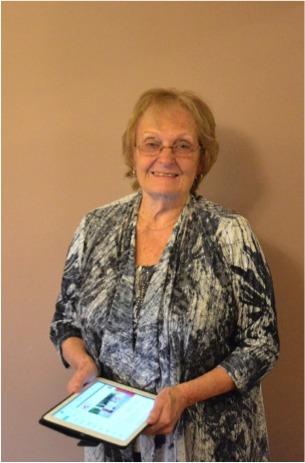
Pauline Tittley – Ottawa, Ontario
Having worked as a laboratory technologist and being diagnosed with MS, it is no wonder that Pauline is eager to learn more about therapeutic developments for people living with MS. Her involvement with the MS Society of Canada extends as far back as being a founding member of a self-help group for women living with MS, as well as a past board member for the Ottawa Chapter. When asked about her interest in being a Community Representative, she said, “It is of great interest to me to review the goals of MS research in terms of having a better understanding of the disease and an eventual cure. This experience will also increase my knowledge of the funding process.”
Read Pauline’s full interview
In what ways have you been involved with the Multiple Sclerosis (MS) Society of Canada as a volunteer, as a leader, and/or as an ambassador?
I was one of the founding members of the self-help group for women. Although they were single, I was a single parent. We would meet in our homes to discuss our journey with the disease.I was also a member of the Board of the Ottawa Chapter and a member of patient services which allocated Trillium money
What inspires you to get involved with the MS community?
My background is in health care, laboratory and clinical and it is of interest to me to know what researchers are doing to further understand MS and to know about the innovative therapies.
Please describe one particular moment or experience with MS that is most important to you or has been most instructive in your life.
Belonging to the self-help group was a wonderful experience. The members shared very personal facets of their life and their symptoms. It was a great relief to all to know that we were not alone and could help each other with symptoms and strategies. For many years I have kept in contact with members.
What makes you feel like you are an ideal representative for the MS community?
I have MS and am interested in knowing more about the important research work of others. It is worthwhile assisting others who need help in their daily lives. It is of great interest to me to review the goals of MS research on having a better understanding of the disease and an eventual cure. This experience will also increase my knowledge of the funding process.
Is there any area of MS scientific research that you are especially passionate about?
I am interested in knowing more about the therapeutic developments for MS and patient care... However all aspects relating to a better understanding of MS is of interest to me.
Biomedical Review Committee
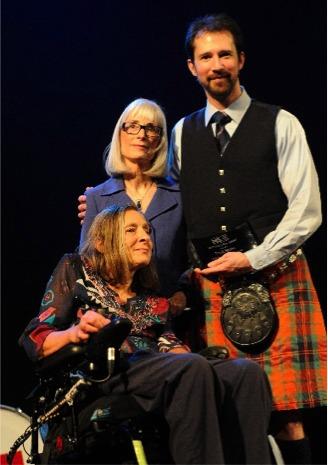
Derek Milloy – Burnaby, British Columbia
A recipient of the Opal Award (British Columbia and Yukon Division) and volunteer and fundraiser of several MS Walks, Derek has actively been involved with the MS Society of Canada since his wife’s diagnosis. When asked about his curiosity within the MS scientific research area, he said, “Prospects for remyelination stir excitement, of course, and the increasing attention paid to the progressive form of the disease from which my wife suffered hits close to home. But I also want to continue learning about other areas that are seeing progress.” As a new Community Representative and member of the Biomedical Research Review Committee, Derek is excited to expand his knowledge of research and therapies in progressive MS.
Photo courtesy of The Province of BC
Read Derek’s full interview
In what ways have you been involved with the Multiple Sclerosis (MS) Society of Canada as a volunteer, as a leader, and/or as an ambassador?
After my wife’s diagnosis, I volunteered as a musician at some MS Walk events, and later we joined other walks in Vancouver together. I have continued to walk and raise funds each year since her passing in 2011. I was honoured that year when our good friend (and MS ambassador), Linda McGowan chose to nominate me for the BC/Yukon Division Opal award and later humbled to receive it from the MS Society of Canada
What inspires you to get involved with the MS community?
The powerful support my wife (and I) received from the MS society and the difference it made to her life (our lives) was too great to measure and so great that I feel I must help further the fight to end the disease & support others affected by it.
Please describe one particular moment or experience with MS that is most important to you or has been most instructive in your life.
A particularly important moment was the first time (and there were many afterward) that I realised I had completely forgotten that my wife even had MS. The progression of her disease was aggressive and left her wholly dependent physically; it wrecked the way her body worked, but she never let it ruin her life.
What makes you feel like you are an ideal representative for the MS community?
I have witnessed how an amazing attitude can find joy and fulfillment in a life that would otherwise be dominated by hardship. At the same time, I have felt and shared in the hardships and the frustration presented by the unique puzzle MS presents to everyone it touches. I’d like to help untangle that puzzle by supporting research and MS Society programs, and maybe I can offer some encouragement to others like that we received when individuals in the MS Society first reached out to us.
Is there any area of MS scientific research that you are especially passionate about?
Prospects for remyelination stir excitement, of course, and the increasing attention paid to the progressive form of the disease from which my wife suffered hits close to home, but I also want to continue learning about other areas seeing progress.
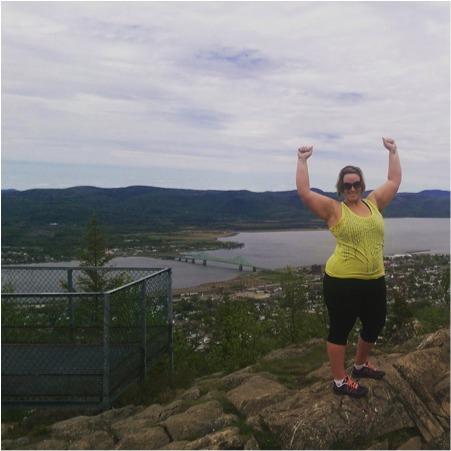
Jenny Gauthier – Campbellton, New Brunswick
Jenny was diagnosed in 2010 with relapse remitting MS (RRMS). In the face of the challenges this diagnosis has entailed, Jenny brings incredible positivity and energy through a variety of positions. Whether it be a French teacher in Northern New Brunswick, Chair of the MS Society's Restigouche Chapter, or key fundraiser for the MS Walk in Dalhousie, Jenny continues to share her inquisitive spirit and positive outlook. Hence, it’s no surprise that Jenny brought these qualities again as a returning Community Representative on the Biomedical Research Review Committee. A highlight for her was witnessing the passion of the scientific reviewers as they debated the fine details of individual grant applications. “The review was, by far, one of the most interesting, informative, and unique experiences that I have ever been a part of! The research that professionals in all sorts of fields are doing, proposing and thinking of to change the future of MS is unbelievable!”
Read Jenny’s full interview
What made you interested in becoming a Community Representative?
I was interested in becoming a Community Representative because the idea of being part of the future advances in MS was very appealing to me. As I am the current chair of my community chapter, it was very important to me to be involved in this significant aspect of the work that the MS Society does.
How has your level of interest in MS research changed through your participation in the review process?
I have become much more open minded and positive in regards to MS research due to my participation in the review process. I was officially diagnosed with MS in April 2011. Over the past 4 years, I have become more accepting of my diagnosis and the implications it has on my health and quality of life. My level of interest in MS research has changed drastically over this time span.
Before serving as a Community Representative, I was interested in more natural ways of treating my MS. Since my participation in the review process, I have become more interested in the current research and results of studies and treatments in MS. Recently, I have been experiencing several new symptoms with my illness. I had numerous different treatment options presented to me by my neurologist. After a lot of research about the different drugs I finally made a decision. I have decided to go on “the pill”, Tecfidera to treat my MS. If it weren’t for research projects, studies and proposals like the ones we reviewed, advances in this field would not be possible.
What take home message would you provide to future applicants and people in the community about your experience as a Community Representative?
My take home message from my experience as a Community Representative would be that this was an extremely important opportunity that I was able to be involved in, and it’s something that you need to be involved in if you want to have an input on the changes in the future of MS. This review helped me grow as an individual. I tell my students that we are all lifelong learners. If you can learn from an experience, go for it! Imagine if one of the projects I had a strong voice or opinion about even resulted in changing the quality of life in one person; words cannot describe the feeling I would have!
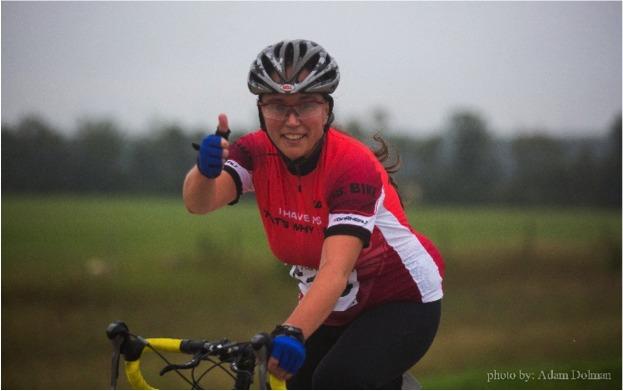
Karen Tweed – Winnipeg, Manitoba
Known as the ‘Inspirational Champion’ of the 2015 MS Biking to the Viking, fundraiser and returning Community Representative, Karen is a fierce leader and advocate for MS. She has continued to be an encouraging member of the MS Society by providing interviews on CTV Morning Live, CBC radio and she has spoken in front of a crowd of 300. In spite of being diagnosed with MS, Karen discovered that she could still live a healthy lifestyle. “I can enjoy the things that I thought MS had taken from me. I’ve even taken up kayaking!”. As part of the Biomedical Research Review Committee, Karen looks forward to learning about the connection between MS and re-myelination.
Read Karen’s full interview
In what ways have you been involved with the Multiple Sclerosis (MS) Society of Canada as a volunteer, as a leader, and/or as an ambassador?
2015 MS Biking to the Viking: Inspirational Champion – participated as a rider, helped promote with live interviews on CTV Morning Live and CBC radio, and gave speech during the dinner (Standing ovation is a good sign right?), and raised just over $1000 in fundraising. Gave speech at my company’s United Way Fundraising Kick-off where I spoke about living with MS and the importance of the ongoing support from the MS Society. Speaking to an audience of 300 of my peers was very intimidating!
What inspires you to get involved with the MS community?
I want to see more MS’ers living well while we search for the cure.
Please describe one particular moment or experience with MS that is most important to you or has been most instructive in your life.
Having the courage to get back in the saddle – horse and bike. Discovered that I could still live an active lifestyle in spite of MS, and enjoy the things I thought MS had taken from me. I’ve even taken up kayaking.
Is there any area of MS scientific research that you are especially passionate about?
The research showing benefits of exercise, and of course anything that gets us closer to a cure!